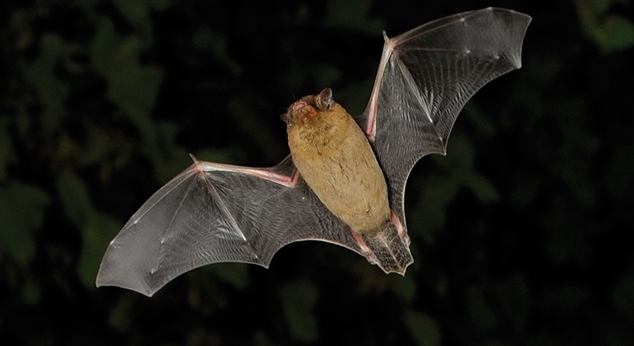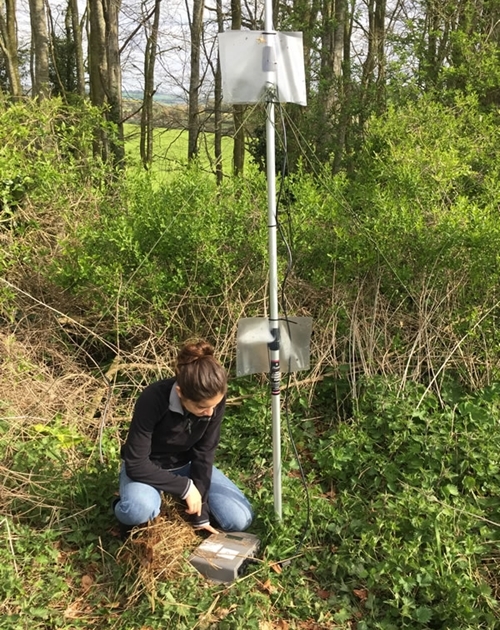
A NEW project that aims to improve the conservation of bats on farmland has been launched by a charity in Fordingbridge after getting the go-ahead for National Lottery funding.
The Game & Wildlife Conservation Trust (GWCT) has received a grant from the Heritage Lottery Fund (HLF) worth £9,400, which will enable them to investigate agri-environment scheme habitat requirements of bats in Hampshire and Dorset.
This crucial work will be done through focused surveys on 15 farms and the findings will help to advance current knowledge of bat farmland ecology by identifying key habitats for farmland bat conservation.
Farmers, landowners and conservationists will be educated on ways in which to improve foraging habitats for bats as well as being provided with valuable information on the distribution and abundance of bats on farmland.
Bat populations declined significantly in the UK during the 20th century due to roosting and foraging habitat loss, these declines were in part caused by agricultural intensification.
Bat roosts in Britain are protected under legislation, but foraging sites are unprotected making them susceptible to land use changes.
But the GWCT strives to establish exactly which habitats on arable land are attractive to bats today and promote these habitats to farmers to aid bat conservation.

“When we think about farmland wildlife, bats are unlikely to be among the first species that spring to mind. But there is a critical need to understand how farmland can be managed to benefit bats and we hope our project, with the support of the National Lottery, will help landowners to learn how to better conserve these fascinating creatures,” said GWCT postdoctoral ecologist Niamh McHugh.
Once the one-year project is complete, the Trust will host two workshops.
One will be for the team of advisors and policy director, who offers advice on agri-environment schemes, and the other will be for farmers that have taken part in the project. Both workshops will be aimed at advising interested parties on how to manage arable land to increase foraging opportunities for bats.
In addition, a leaflet will be created to raise awareness about bats living on arable farms and the issues affecting them in rural landscapes.
Nerys Watts, head of HLF South West, said: “Bats are an incredibly important part of our natural heritage but they are at risk – a fact that National Lottery funded projects across the UK are trying to change. We’re delighted to support this project which will involve local people, farmers and other partners to develop an understanding of how farmland works as a habitat for bats and what needs to change to help them.”
To find out more, follow the team on Twitter @AgriBats or visit http://www.agribats.com/
About the Heritage Lottery Fund (HLF)
Thanks to National Lottery players, we invest money to help people across the UK explore, enjoy and protect the heritage they care about - from the archaeology under our feet to the historic parks and buildings we love, from precious memories and collections to rare wildlife. www.hlf.org.uk. Follow us on Twitter, Facebook and Instagram and use #HLFsupported
Notes to editors
The Game & Wildlife Conservation Trust – providing research-led conservation for a thriving countryside. The GWCT is an independent wildlife conservation charity which has carried out scientific research into Britain’s game and wildlife since the 1930s. We advise farmers and landowners on improving wildlife habitats. We employ more than 60 post-doctoral scientists and other research staff with expertise in areas such as birds, insects, mammals, farming, fish and statistics. We undertake our own research as well as projects funded by contract and grant-aid from Government and private bodies. The Trust also has a dedicated professional advisory service to make sure that the results of its research are easily available to farmers, landowners, gamekeepers, and others delivering practical conservation.
For information, contact:
Eleanor Williams
Telephone: 07592 025476
Email: ewilliams@gwct.org.uk